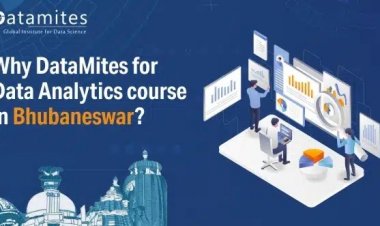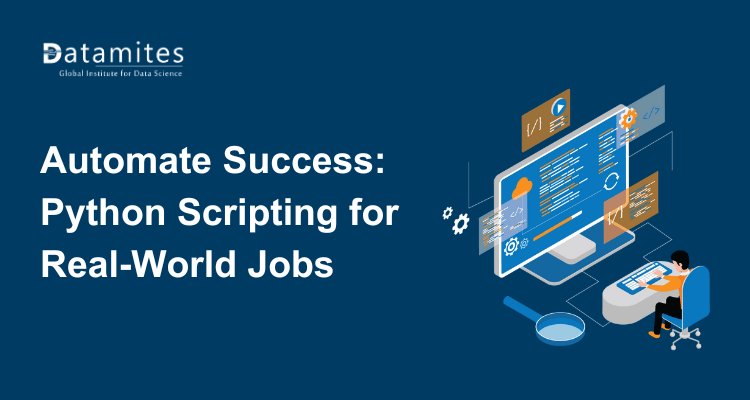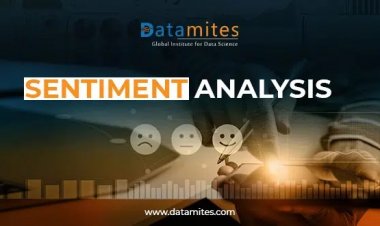How to Become A Data Analyst – Best Certification Courses in India
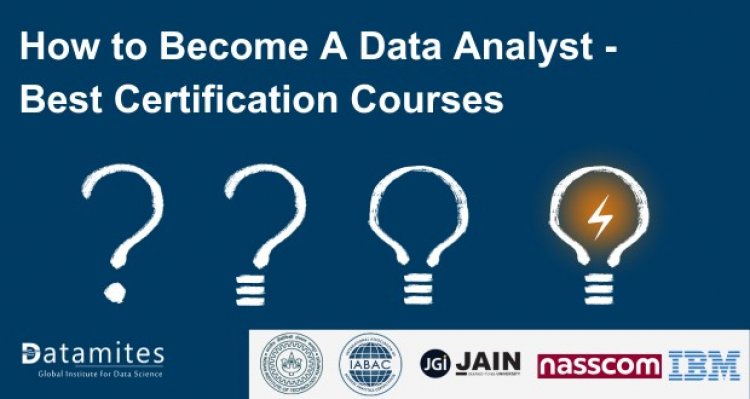
The demand for data analysts in India is currently at an all-time high, presenting a wealth of opportunities in this burgeoning field. With the exponential growth of data in various industries, organizations are increasingly relying on data analysts to extract actionable insights.
According to a Precedence Research report, the global data analytics market reached a valuation of USD 30 billion in 2022, and it is anticipated to exceed USD 393.35 billion by 2032. This growth is expected to be driven by a projected compound annual growth rate (CAGR) of 29.4% over the forecast period from 2023 to 2032.
As India continues to establish itself as a global technology and business hub, data analysts are well-positioned for a promising career with the chance to shape the future of data-driven decision-making in the country. In this article, we will explore the thriving opportunities and high demand for data analysts in India
Refer these articles:
- Understanding Diagnostics Analytics
- Exploring Descriptive Analytics
- Prescriptive Analytics: A Brief Overview
Deciphering Data Analytics and Defining the Role of a Data Analyst
Data analytics involves the process of examining, cleaning, transforming, and interpreting raw data to extract valuable insights and make informed decisions. It encompasses a wide range of techniques and tools to uncover patterns, trends, and correlations within data, facilitating better business strategies and problem-solving.
A data analyst is a professional responsible for collecting, processing, and analyzing data to support decision-making and solve complex problems. Data analysts are proficient in using various data analysis tools and have a strong understanding of statistical methods, data visualization, and data interpretation to provide actionable insights.
According to an IBM report, the field of Data Analytics is projected to experience substantial job growth, with an expected increase to nearly 350,000 jobs by the year 2023. Additionally, the salary of a data analyst in India ranges from INR 7,00,000 per year according to a Glassdoor report.
Additionally, let’s take a look at the typical salaries of Data Analyst in major cities across India:
- The salary of a data analyst in Bangalore ranges from INR 9,00,000 per year.
- The salary of a data analyst in Hyderabad ranges from INR7,00,000 per year.
- The salary of a data analyst in Chennai ranges from INR 7,00,000 per year.
- The salary of a data analyst in Pune ranges from INR 6,00,000 per year.
- The salary of a data analyst in Mumbai ranges from INR 6,00,000 per year.
- The salary of a data analyst in Delhi ranges from INR 6,00,000 per year
- The salary of a data analyst in Kolkata ranges from INR 7,00,000 per year.
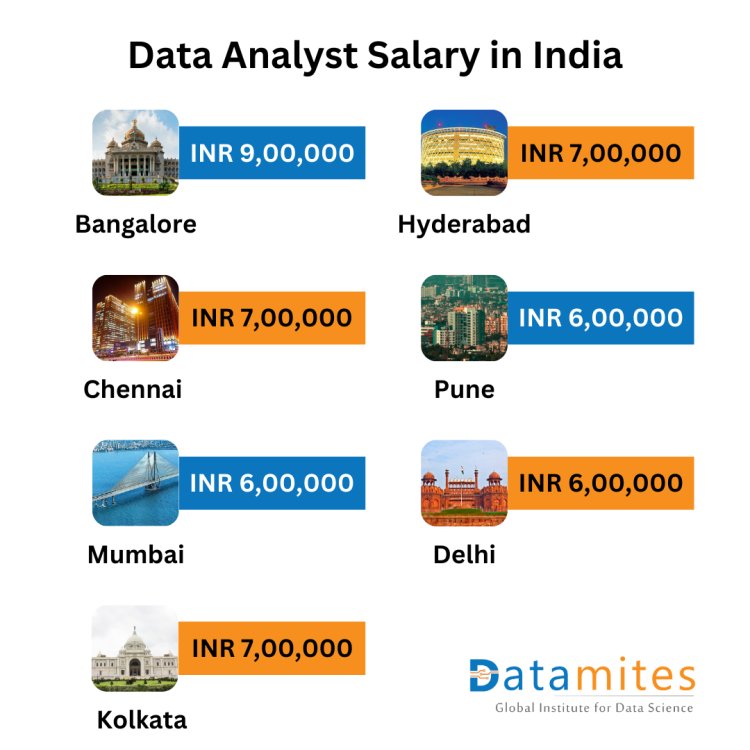
A Roadmap to Become a Data Analyst in India
Becoming a data analyst in India requires a combination of education, skills development, and practical experience. Here’s a roadmap to help you become a data analyst:
Educational Foundation:
Bachelor’s Degree: Start with a bachelor’s degree in a related field such as Statistics, Mathematics, Computer Science, Economics, or a specific area of business like Finance or Marketing. This provides a strong academic foundation.
Master’s Degree:
Consider pursuing a master’s degree in Data Science, Analytics, or a related field. While not always necessary, it can make you more competitive in the job market and provide in-depth knowledge.
Develop Core Skills:
- Mathematics and Statistics: Solidify your understanding of statistics, probability, and linear algebra. These are fundamental for data analysis.
- Programming: Learn programming languages commonly used in data analysis, such as Python or R. Proficiency in SQL for database querying is also essential.
- Data Visualization: Gain expertise in data visualization tools like Tableau, Power BI, or Matplotlib/Seaborn in Python.
- Excel: Master advanced Excel functions for data manipulation and analysis.
- Machine Learning: Understanding machine learning concepts can be beneficial for more advanced data analysis.
Build a Portfolio:
Work on personal or side projects to apply your skills. Create a portfolio of data analysis projects that showcase your abilities. Share these on platforms like GitHub.
Certifications:
Consider pursuing industry-recognized data analytics certifications in India like the Google Data Analytics Professional Certificate, Microsoft Certified: Data Analyst Associate, or others that align with your goals.
Internships and Entry-Level Positions:
Seek data analytics courses with internships in India or entry-level positions in data-related roles. This hands-on experience is invaluable and can lead to a full-time job.
Soft Skills:
Develop soft skills such as communication, problem-solving, and critical thinking. Data analysts often need to explain complex findings to non-technical stakeholders.
Continuous Learning:
The field of data analysis is continually evolving. Stay updated with the latest tools, techniques, and trends through blogs, podcasts, and online courses.
Interview Preparation:
Prepare for interviews by practising data-related questions, discussing your projects, and being ready to demonstrate your skills.
On-the-Job Learning:
Continue learning and improving your skills on the job. Seek mentorship and collaborate with colleagues.
Career Growth:
As you gain experience, consider specializing in a particular domain (e.g., marketing analytics, healthcare analytics) or moving into more advanced roles like Data Scientist or Data Engineer.
Refer these articles:
- Guide to Data Science Career
- Understanding the Concept of Data Science
- What is the Role of a Data Scientist?
The step-by-step learning process to become a data analyst
Here’s a step-by-step learning process for becoming a data analyst in 6 months, focusing on Data Analysis Foundation, Data Science Foundation, Data Analysis Associate, Live Projects and Internship:
A 6-month learning path for becoming a data analyst typically involves a structured approach to acquiring the necessary skills and knowledge. Here’s a step-by-step guide for someone looking to embark on a journey to become a data analyst within this timeframe:
Month 1-2: Foundation and Basics
Introduction to Data Analysis:
- Familiarize yourself with the basic concepts of data analysis.
- Understand the importance of data in decision-making.
Excel Proficiency:
- Master essential Excel functions and formulas.
- Learn data cleaning and manipulation techniques.
Introduction to Statistics:
- Grasp fundamental statistical concepts such as mean, median, mode, standard deviation, and probability.
- Understand statistical distributions.
SQL Basics:
- Learn the basics of SQL for querying relational databases.
- Practice writing simple to moderately complex queries.
Month 3-4: Tools and Advanced Skills
Data Visualization:
- Explore data visualization tools like Tableau or Power BI.
- Learn to create compelling and informative visualizations.
Intermediate Statistics:
- Dive deeper into statistical concepts like hypothesis testing, regression analysis, and ANOVA.
- Apply statistical techniques to real-world datasets.
Python Programming:
- Begin learning Python, a versatile language for data analysis.
- Understand libraries like Pandas and NumPy for data manipulation.
Advanced Excel:
- Expand your Excel skills to include advanced functions and features.
- Practice building complex models and dashboards.
Month 5-6: Internship, Project Work & Job Search
Internship:
- Begin your internship, applying the skills learned during the first five months.
- Engage with the team, ask questions, and actively participate in projects.
Capstone Project:
- Undertake a comprehensive capstone project that integrates all the skills learned.
- Apply statistical methods, programming, and data visualization to solve a complex problem.
Specialization Area:
- Identify a specific area of data analysis that aligns with your interests (e.g., finance, marketing, healthcare).
- Explore specialized tools or techniques related to your chosen area.
Build a Portfolio:
- Start working on real-world projects to showcase your skills.
- Create a portfolio with detailed explanations of your projects and the problems you solved.
Networking:
- Attend industry events, webinars, or join online communities related to data analysis.
- Connect with professionals in the field and seek advice.
Job Search and Interview Preparation:
- Tailor your resume and cover letter to highlight your skills and projects.
- Practice common data analyst interview questions and scenarios.
By following this structured learning path, individuals can build a solid foundation in data analysis, gain hands-on experience through projects, and develop the necessary skills to pursue a career as a data analyst within a 6-month timeframe. Remember that continuous learning and staying updated with industry trends are essential for a successful career in data analysis.
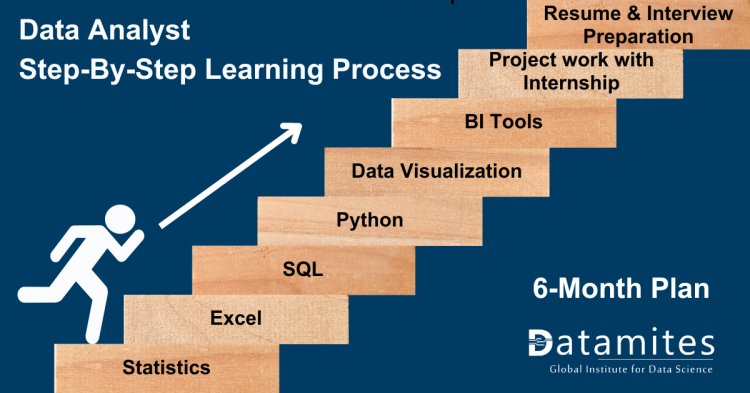
Refer these articles:
What are the Popular Data Analyst Certification Courses in India?
Data Analyst programs are offered by various institutions and organizations and can help individuals enhance their skills and knowledge in the field of data analytics. Here are some top data analyst certifications in India:
IIT Kanpur – Advanced Certification in Data Analytics: Indian Institutes of Technology (IITs) are renowned for their academic excellence. IIT Kanpur offers an Advanced Certification in Data Analytics, which is highly regarded for its quality and rigour.
- Industry Recognition and Relevance: IIT Kanpur is one of India’s most prestigious educational institutions, and its certification is highly regarded in the industry. Employers often recognize the value of a certification from IIT, and it can open doors to job opportunities.
- Curriculum Quality and Rigor: IIT programs are known for their academic excellence and rigorous curriculum. The Data Analytics certification from IIT Kanpur is likely to offer a high-quality education in data analytics.
- Interactive Hands-on Learning: IIT programs typically emphasize practical learning and hands-on experience. Expect to engage in data analysis projects and gain valuable practical skills.
- Student Experience: The student experience at IIT Kanpur is often characterized by challenging coursework and a highly competitive academic environment. Students are expected to work hard and excel in their studies.
IABAC (International Association of Business Analytics Certifications) – Certified Data Analyst: IABAC offers various data analytics certifications, including the Certified Data Analyst certification. This certification is recognized in the industry and can be a valuable addition to your resume.
- Industry Recognition and Relevance: The Certified Data Analyst (CDA) certification from IABAC is recognized in the industry and can be valuable for career advancement in data analytics.
- Curriculum Quality and Rigor: IABAC’s curriculum is designed to provide a comprehensive understanding of data analytics concepts and tools, and it is structured to ensure rigour in learning.
- Interactive Hands-on Learning: Many IABAC programs include practical components, which can help students apply their knowledge to real-world data analysis scenarios.
- Student Experience: Candidates highly regard IABAC certification for its comprehensive content and the enhanced professional credibility it bestows upon them.
Jain University – Master of Science in Data Analytics: Jain University offers a Master of Science program in Data Analytics, which provides a comprehensive education in data analytics and data science. Earning a master’s degree in this field is highly beneficial.
- Industry Recognition and Relevance: A master’s degree in data analytics from Jain University is highly relevant and recognized in the data analytics industry. It demonstrates a high level of expertise.
- Curriculum Quality and Rigor: Master’s programs tend to offer in-depth and rigorous coursework, covering a wide range of data analytics topics. Expect a comprehensive and challenging curriculum.
- Interactive Hands-on Learning: Many master’s programs incorporate practical projects and internships, ensuring that students gain hands-on experience in data analysis.
- Student Experience: The student experience in a master’s program is usually characterized by a deep dive into the subject matter, close interaction with faculty, and a collaborative learning environment.
NASSCOM FutureSkills: The National Association of Software and Service Companies (NASSCOM) offers various certification programs related to data analytics. They collaborate with multiple educational institutions and organizations to provide training and certification.
- Industry Recognition and Relevance: NASSCOM FutureSkills is a well-known industry body in India, and certifications provided by them are recognized by many employers. These data analytics certifications in India can enhance your employability.
- Curriculum Quality and Rigor: NASSCOM FutureSkills provides specialized courses that maintain rigorous standards in curriculum development.
- Interactive Hands-on Learning: NASSCOM FutureSkills often collaborates with educational institutions to offer practical training and certification programs, which can include hands-on learning.
- Student Experience: The student experience will depend on the institution or training provider, so it’s advisable to look into reviews and testimonials from past participants.
IBM Data Analyst Professional Certificate: IBM offers an Online Data Analyst Professional Certificate program. This program covers key data analysis skills and is well-regarded in the industry.
- Industry Recognition and Relevance: IBM is a respected name in the tech industry, and the Data Analyst Professional Certificate is recognized by employers as a valuable credential.
- Curriculum Quality and Rigor: IBM’s program is known for its quality and rigour. The curriculum covers key data analysis skills and tools.
- Interactive Hands-on Learning: courses, including data analytics, often incorporate hands-on projects and assessments, allowing students to apply what they’ve learned.
- Student Experience: The online learning experience is flexible, allowing students to learn at their own pace. However, the level of support and engagement may vary based on individual preferences and interactions with the community.
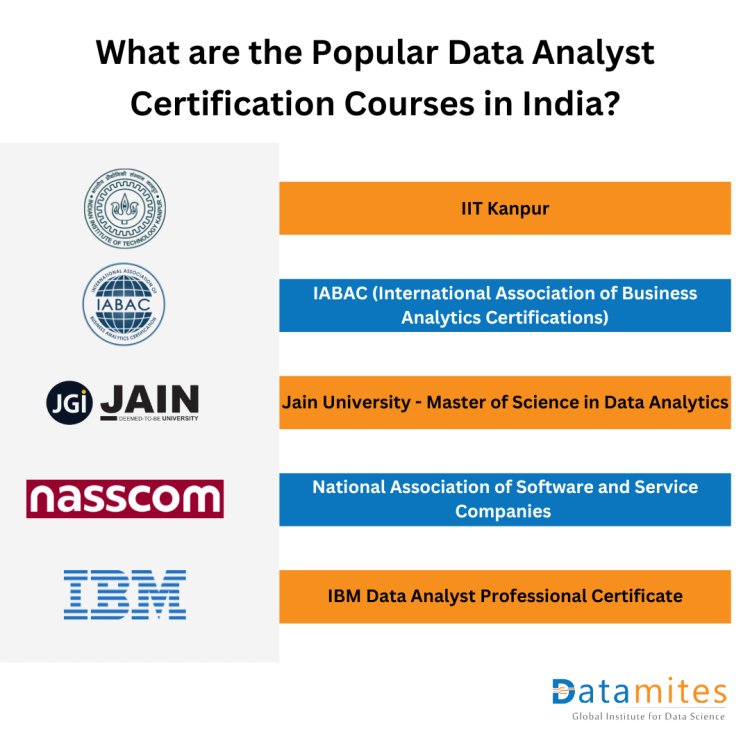
Bottom Line:
To become a data analyst in India, a combination of education, practical experience, and relevant certifications is essential. Choosing the best certification depends on your career goals and preferences. A well-rounded approach that combines education and certification can pave the way for a successful career in data analytics in India.
Check for programs similar to those provided by institutions like DataMites Training Institute, which hold accreditation from well-recognized organizations like IABAC, Jain University, and NASSCOM FutureSkills. Keep in mind that becoming a data analyst in India entails more than just academic study; it’s a journey of continuous learning and staying current with the latest industry developments. If you have a passion for working with data and enjoy problem-solving, this career path might be an ideal choice for you.

